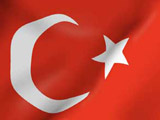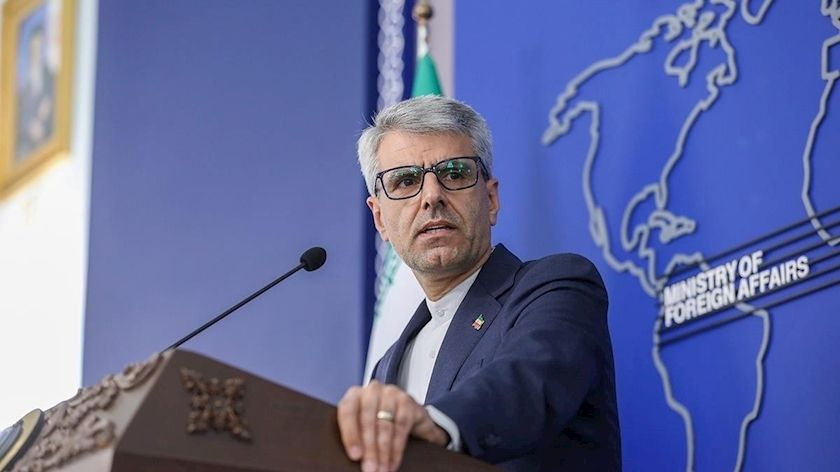|
|
TODAY.AZ / Politics
Turkey boosting its defense systems
24 April 2007 [07:59] - TODAY.AZ

Turkey's Undersecretariat of the Defense Industry (SSM) has issued a number of requests for information (RfIs) recently for the acquisition of various types of air defense systems for the three main branches of the armed forces, the Turkish Air Force Command, Land Forces Command and Naval Forces Command.
An RfI issued on April 18 covers the procurement of 45 (with an option for a further 45) low-altitude air defense missile systems (T-LALADMIS) for the Land Forces and 12 low-altitude air defense missile systems for the Naval Forces. The SSM issued an RfI on March 21 for the acquisition of three medium-altitude air defense missile systems (T-MALADMIS) for the Land Forces and companies have until June 1 to respond.
Also in March, the SSM issued an RfI for the acquisition of four long-range air and missile defense systems (T-LORAMIDS) to meet the requirements of the Air Force Command. On April 17 it released the names of the 13 companies that have declared their intention to respond. These include: Boeing of the US; Lockheed Martin and Raytheon of the US, which have reportedly teamed up to meet Turkish requirements for Patriot PAC-3s; China's CPMIEC; Israel Aerospace Industries (IAI); and local companies including Aselsan, FNSS and Roketsan.
Boeing and IAI reportedly offered Arrow missile systems that Turkish defense industry sources said do not meet the Turkish requirement of shorter range missiles. Arrow missiles, a joint production of the US and Israel, are also costly. Turkey has been seeking to acquire four long-range air and missile defense systems, at a cost of around $1.2 billion, that could deter both conventional as well as ballistic missile threats; the system also should operate effectively in low, medium, high altitudes and at long ranges.
Turkey seeks, for example, a maximum effective altitude for detection and engagement of at least 10 kilometers. Arrow 2 missiles have a detection range of 500 km. The Arrow, an anti-ballistic missile system developed jointly with Boeing, was unveiled for the first time at the Palmachim air base in Israel in 2002.
The missile, untested in combat, would have been Israel’s last line of defense if Iraq responded to a US attack by launching Scud missiles against the Jewish state, said an information note released by IAI at the time. Meanwhile, Lockheed Martin and Raytheon have declared that they will respond to the RfI via the US government within the scope of price and availability data studies. In other words, US companies are expected to offer US Foreign Military Sales (FMS) credit.
Turkey is also looking to procure two command-and-control aircraft for the air force under an RfP issued by the SSM on April 18. Potential bidders should obtain the RfPs by April 27 and the deadline for responses is set at June 15. Separately, Denel (South Africa), Rafael Armament Development Authority (Israel), Raytheon (US) and Rosoboronexport (Russian Federation ) have so far responded to an RfP issued on January 30 for the procurement of a medium-range anti-tank weapon system (MRAWS) for the army.
Turkey is to buy 800 anti-tank missiles with a range of up to 4,000 meters, valued at about $80 million, according to the RfP. It states that Turkey will directly procure 80 MRAWSs, including weapon units, 10 missiles per weapon (800 missiles), tripods and related containers and accessories.
Gen. Ergin Saygun, the deputy chief of general staff, stated during his speech delivered at the annual American-Turkish Council (ATC) meeting in Washington in late March this year that "we [Turkey] want a nuclear free Middle East." Ankara is refraining from provoking Iran by not allowing its bases to be used by the US or by any third country in the case of a confrontation with Tehran.
"The same goes with the US's missile defense program. We [Turkey] cannot allow US missiles to be based on our territory since this will mean Ankara will be contributing to the creation of a devil on its doorstep," said a senior Turkish diplomat.
Ankara has been urging Iran to cooperate with the international community in its nuclear arms stand-off while seeking to build its own long-range missile defense systems to deter any possible anti-ballistic missile attacks on the country.
Meanwhile, Turkish Defense Minister Vecdi Gonul said on March 14, during a meeting with his German counterpart, Franz Josef Jung, that Turkey was not part of a project aimed at developing a US-proposed anti-ballistic missile shield within NATO.
The US has been moving toward the creation of its own missile defenses and has recently announced plans to base missile interceptors in Poland and radar units in the Czech Republic but many NATO allies are concerned about the US system to shoot down missiles fired by what Washington calls "rogue states" such as Iran and North Korea. Ankara also has a plan to build nuclear energy plants to lessen its almost 80 percent foreign dependency, mainly to Russia, in meeting its energy demands. Through nuclear energy facilities, Ankara will thus bridge its gap in nuclear energy technology with the countries in the region. Today's Zaman
URL: http://www.today.az/news/politics/39874.html
 Print version
Print version
Connect with us. Get latest news and updates.
See Also
- 15 October 2025 [15:13]
President Ilham Aliyev addresses participants of 3rd National Urban Forum - 15 October 2025 [14:50]
President Ilham Aliyev receives delegation headed by OSCE Chairperson-in-Office - 15 October 2025 [13:49]
Urban planning is a priority direction in Azerbaijan’s national development strategy - President Ilham Aliyev - 15 October 2025 [13:47]
President Ilham Aliyev approves agreement on cooperation in education between Azerbaijan and Brazil - 15 October 2025 [13:41]
Over 22,000 IDPs resettle in their hometowns - 15 October 2025 [13:37]
President Ilham Aliyev approves agreement on cooperation in healthcare with CIS countries - 15 October 2025 [12:12]
Why couldn't Azerbaijan not be in Sharm el-Sheikh - 15 October 2025 [01:43]
Court continues hearings in Ruben Vardanyan’s war crimes case - 14 October 2025 [18:09]
Over 55,000 return to liberated territories of Azerbaijan as part of Great Return Program - 14 October 2025 [15:27]
Armenia rejects Azerbaijan’s demand for constitutional changes before peace deal
Most Popular
 Azerbaijan set to handle 15 mln tons of rail cargo annually
Azerbaijan set to handle 15 mln tons of rail cargo annually
 Why couldn't Azerbaijan not be in Sharm el-Sheikh
Why couldn't Azerbaijan not be in Sharm el-Sheikh
 Mustafayev: Trilateral dialogue strengthens Azerbaijan–Iran–Russia partnership
Mustafayev: Trilateral dialogue strengthens Azerbaijan–Iran–Russia partnership
 Afghanistan-Pakistan clashes leave scores dead amid rising tensions
Afghanistan-Pakistan clashes leave scores dead amid rising tensions
 Azerbaijan, Iran, and Russia adopt communiqué to enhance cooperation on North-South transport corridor
Azerbaijan, Iran, and Russia adopt communiqué to enhance cooperation on North-South transport corridor
 Trilateral consultations in Baku highlight regional cooperation agenda - Iranian FM
Trilateral consultations in Baku highlight regional cooperation agenda - Iranian FM
 Revanchists try to gather people again. And money. And it is not known what they need more
Revanchists try to gather people again. And money. And it is not known what they need more
